|
Imagine you are being arrested and charged with first-degree murder. The arresting officer informs you murder is against the law. You are then taken to court, where a presiding judge informs you murder is against the law, but only if the person is wearing socks with Birkenstocks, in which case murder is legal. The victim was wearing loafers, so you are sent to jail. You get an appeal and see another judge who reviews your case and informs you that, despite the victim’s shoe apparel, murder is also legal as long as you notify the victim you are going to kill them at least 24 hours in advance, in which this case, you sent a very nasty text message warning the victim of your intentions. However, you remained in prison because the warden of the prison you reside in believes anyone who murders someone other than a Dodger fan deserves the harshest penalty the legal system can offer as long as it is not on a Saturday. As you can see, the law makes sense, just not the interpretations.
Now, in these basic belief systems, all churches are created equal. Which, in an ideal world, would be enough to unify the Christian Churches across the globe. But, as any cognizant member of Christianity knows, this preferred reality is a fantasy. Despite the cohesive, basic beliefs, the Christian church is a divided, splintered, and scattered mess. Denominations have fragmented God’s church. Regardless of the foundational synchronicity, the human element has infiltrated the body of Christ and a fracture has occurred.
This is not a new trend. Churches have been popping up and splitting since 325 A.D. The majority of the New Testament is Paul self-inflicting carpel-tunnel in order to correct the churches spread across the Eastern Hemisphere. In Corinth, Thessalonica, and Ephesus, the once synonymous, elemental foundations of the Christian faith were infected by human interference. It was the usual suspects of pride, greed, lust, and wealth causing havoc. However, at the time, Christianity was a very new belief system so I could understand the guidelines being more of an evolutionary, trial and error sort of process. I mean, even Seinfeld’s first couple seasons needed time to hone their skills. The other issue being the fact most of these regions had practiced pantheistic, orgiastic rituals to satiate the lusts of their pagan gods and, in an opprobrious turnabout, now were attempting to turn the other cheek and abstain from sexual perversion completely. Old habits can be difficult to kick, especially religious ones.
However, somewhere between the millennia, the Christian church wandered into a field of landmines and blew itself to pieces. In Paul’s exhaustive letters, he tells the Ephesians, “So Christ himself gave the apostles, the prophets, the evangelists, the pastors, and teachers, to equip his people for works of service, so that the body of Christ may be built up until we all reach unity in the faith and in the knowledge of the Son of God and become mature, attaining to the whole measure of the fullness of Christ.” It is the words ‘unity in the faith’ where I believe the body of Christ has failed. How, in an age of countless denominations, in varying versions of one prescribed faith, can there be cohesion and maturity in the Christian faith? Even if the core principles and theology are verbatim, how can we stand as one, unified religion if we can’t agree on the simplest, most irrelevant of technicalities?
Now, these are the most popular denominations in the United States. Under each, there are sub-denominations, sects, and extensions based on simply geographic reasons among others. If Christ is the trunk, then the church is one, massive tree. Each denomination is a division and the sub-sects divisions of the initial divisions. Cults must also be taken into account since they are derivative of Christian doctrine in their most basic of forms. Of course, most cults, such as Jim Jones’ People’s Temple and David Keresh’s Branch Davidians had roots in the Christian faith but ultimately flowed into a gradual descent of tragic madness fueled by power and lust. Regardless, their origins stem from Christian doctrine. In essence, they were unsanctioned denominations. Which makes the state of the church as a whole a rather shaky scenario when factions can split and gain traction as leaders, even when the doctrine is opprobrious to the fundamental teachings written in the Gospels.
Christ’s original intentions for his church were not meant to be a mirror image of the Tower of Babel. Nor were did he intend for his words to be so vastly misinterpreted, misunderstood, and misused over the remainder of Earth’s existence. Yet, there can almost be no denying that the myriad of churches are alienated by their own pettiness, to the extent they no longer speak the same language or share the same fundamentals.
This alienation separates the church to an almost hostile level, to a reflection of warring countries with a chasm of misunderstanding between the array of denominations. Seventh-Day Adventists have pamphlets proclaiming the Pope as the anti-christ. Catholics and Protestants have animosity as their only form of history between them. Both claiming they are the only, true church of Christ. Assemblies of God just think they are better than everyone else so they don’t get along with anyone. And since the Pentecostals are a mirror-image of the Assemblies of God, no one likes them either despite being the twin of another denomination.
Some churches are so similar, they are mistaken for the same denomination. This same schema is prominent within the culture, especially among the Christmas/Easter church attendee or the indifferent agnostics. And even with someone like me, who has been stuck in a church pew since birth, can’t find discernable differences among the denominations save for Mormons. Can anyone really illuminate the differences between Foursquare and Evangelicals, Jehovah’s Witness and Seventh-Day Adventists, unless they are members of said churches? Lutheran, Church of Christ, and Presbyterians are all different shades of the same color. Even the genre of ‘non-denominational’ is, in reality, a denomination itself. The very assertion of denying a denominational affiliation is undoubtedly another denomination. It reminds me of vehement atheists who so strongly oppose religion, their own non-belief categorizes them as a separate religious organization.
They have become what they hated. But what of it? What does it matter? If all these facets of Christianity serve the same purpose with the same elemental mission, with a shared Gospel message, then what’s the point? Yes, in theory, if every denomination, despite their minor differences, is on the same side, then there should be no cause to even bring up the subject. But we all know such a simple solution will never resolve the problem. The variables are far too abundant because man’s capability to withstand temptation is miniscule. Those pesky emotive hindrances tend to derail any attempt at unity and cohesion as if Screwtape knows us all too well: power, greed, lust, control, jealousy, fame, pride. Inherent vices of the flesh are so annoying. Whether the leader of a church of twenty or twenty thousand, the usual suspects always seek to control the work of our hands. And humanity’s fallibility is the very reason a majority of the denominations exist and, possibly, will continue to appear in the future. As long as the mortal are placed in positions of authority, as stewards over the spiritual flock, error will undeniably pervade. Which is understandable and expected. To an extent. The frivolous minutiae responsible for denominational shifts are not theological or doctrinal rifts, but human arrogance plaguing the church. Cut and paste theology from a cut and paste Bible designed to fit anyone’s moral barometer. Dislike Matt Redman’s songs during worship? We have a church for that. Do you find Song of Solomon too risqué? We have a church for that. Find those metal chairs less inviting than pews? We have a church for that. Do you feel women in pastoral positions is offensive? We have a church for that. So much for unity. Is it a coincidence that ‘demon’ and ‘denom’ are only a letter apart?
I am no theologian or Bible scholar. Nor do I have the tools to be a preacher. But I am a life-long member of the faith. Besides preaching tolerance, I have no answers on unifying the church. That responsibility is in the hands of the one who created the church and he’s busy orchestrating life on this miserable planet. Revelation talks of a unified church and, surprise, surprise, it involves the second-coming of Jesus Christ to bring that into a reality. I can only exhort members who subscribe to the Christian faith, either as church-goers or holiday Christians, to tolerate the frivolities of our human dissimilarities. As long as the essential belief structure is predicated on the resurrection of Jesus Christ and the code of conduct established in the Bible, then there should be no serious division among each other. This is excluding Branch Davidians or People’s Temple or the Westboro Baptist Church or any other extremist, malevolent fringes claiming to be a part of the Christian church. Their supposed Christian beliefs are suspect from their origination. It is best to go forward without the need to resolve or find a solution to repair the current state of the church but rather to move forward with love, tolerance, and a desire to fulfill the Great Commission together.
Regardless of the name. |
Info
"And there was a kid with a head full of doubt so I screamed til I died until all those bad thoughts were finally out." Archives
December 2017
Categories |


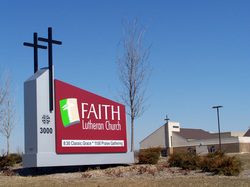
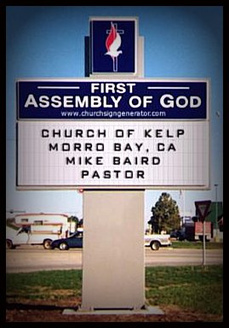
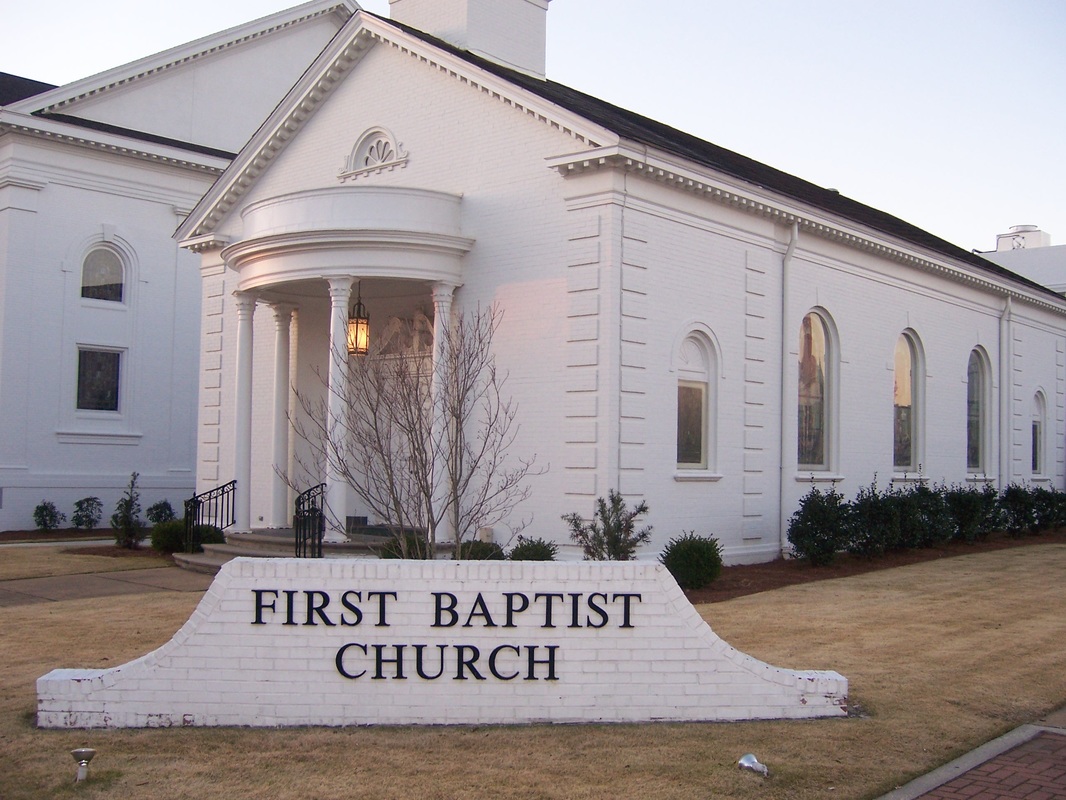
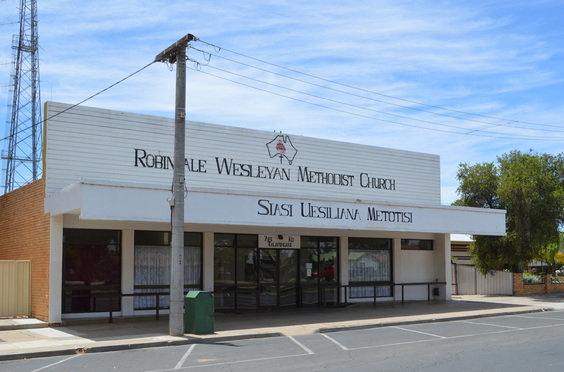
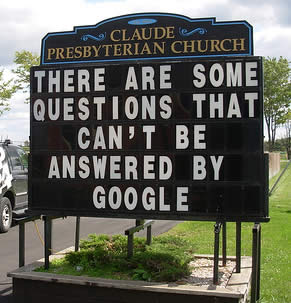
 RSS Feed
RSS Feed